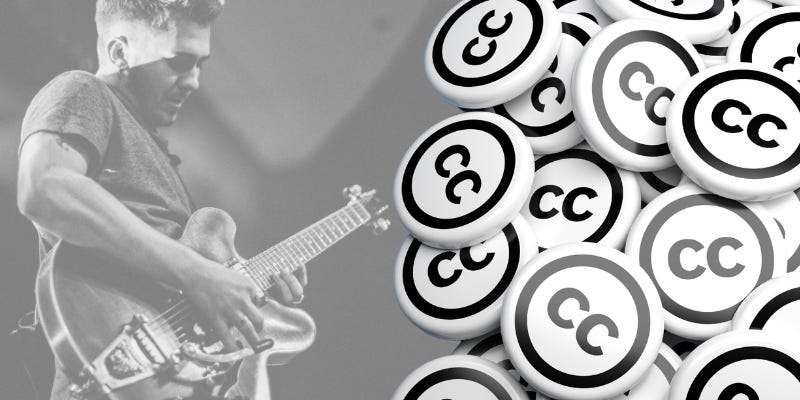Licensing & Royalties for Digital Content
Protect Your Work, Get Paid for It, and Stay in Control
If you’re creating digital content like ebooks, music, artwork, online courses, or photography, you may have heard the terms “licensing” and “royalties.” These are two powerful tools that help you protect your creations and profit from them over time. Licensing means giving someone permission to use your work under specific rules. Royalties are payments you receive when someone uses it.
You don’t have to give up ownership to make money. When you license your work, you keep your rights while allowing others to use it, often for a fee. That way, your digital assets keep working for you, whether they’re being used in a classroom, featured on a website, or published in someone’s project.
Why License Your Digital Assets?
Licensing gives creators a way to stay in control while still making income. It’s especially important if:
You want to earn passive income from something you made once.
You want to protect your work from being copied or misused.
You want to stay in charge of how and where your content is used.
Royalties and licensing often go hand in hand. When someone licenses your work, they often agree to pay you a royalty—either a flat fee, a percentage of sales, or a payment each time it’s used. This can turn a single piece of content into long-term income.
How to License Different Types of Digital Content
Licensing isn’t one-size-fits-all. Here are a few common content types and how licensing often works for each:
Online Courses: You can license a course to a school, business, or platform like Udemy. You'll need to define if they have exclusive use, for how long, and if they can edit your content.
Artwork and Photography: Artists often use platforms like Creative Market, Society6, or Adobe Stock. You decide if the license is for personal use only or if it can be used commercially.
Ebooks and Written Works: Amazon’s Kindle Direct Publishing (KDP) handles licensing differently than licensing to a curriculum company or another author.
Music and Audio: You might license tracks for use in YouTube (TermsFeed) videos, ads, or podcasts. Services like Envanto and Songtradr help manage those rights.
Tip: Creators need to understand what these licensing terms mean, because each one affects your control and your income:
Exclusive – Only one person or company can use your content under the license. You can’t license it to anyone else during that time.
Non-exclusive – You can license the same content to multiple people or platforms at once. You keep more flexibility.
Commercial use – The content can be used to make money, such as in advertising, business websites, or resale products.
Derivative works – The person licensing your content is allowed to change, remix, or build upon it (like turning your poem into a song or video).
Reasons Not to License—And Potential Risks
Not every creator wants to license their work, and that's okay too. Here are some reasons why:
You want full creative control and don’t want others changing or repurposing their work.
You worry about misuse or misunderstandings with the license terms.
You don’t feel ready or don’t understand the legal side of licensing yet.
But there’s a risk in not licensing. If you don’t set terms, others might assume they can use your content freely—or worse, profit from it without your permission. A clear license is often better than silence.
Where Can You License Your Work?
In addition to the links above, here are a few platforms that help creators learn more about the license process for digital content:
Creative Commons – Offers free license templates and explanations.
Gumroad – Great for selling ebooks, templates, and art with clear license options, but their key strength is offering license keys for software sellers.
MUSICBED – Learn how to license music for your projects, and why it matters.
LearnDash – Should you license your course?
Takeaway: Licensing = Leverage
Licensing your digital content can feel complicated at first, but it’s one of the smartest ways to turn your creativity into income, especially if you focus on one digital product at a time to grapple with learning curves. By setting clear rules and keeping your rights, you protect your work and make it work for you.
Don’t wait until someone uses your content without permission. Learn the basics, choose the platforms that fit your style, and let your digital assets support your future.
Fave Links This Week
How to Start Licensing Your Art (and Why You Should). (LateralAction)
Happy Birthday song copyright goes public: How one of history's most expensive birthday gifts was finally returned. This story is from 2015, but the legend is timeless. (Independent)
AI Aftershocks: US Copyright Licensing Booms. If this article seems like it was written in code, take a look at the next article to get a grip on the concept here. (20 CEPA)
Jeff Bezos’ Washington Post Inks OpenAI Licensing Deal for ChatGPT Search. (Variety)
Created by Humans. This new online marketplace, which launched publicly in January 2025 in partnership with the writers' advocacy nonprofit, The Authors Guild, aims to give authors more control over how their books are used by artificial intelligence companies. (CreatedbyHumans).
© 2023-2025 Hyperdivergent. All rights reserved. The trademark Hyperdivergent™ is the exclusive property of Hyperdivergent.
This website, including text, blog content, graphic designs, photographs, Case Studies, Resources, Tutorials, and other creative works found on this website, constitutes educational and journalistic expression not intended as professional business advice.
Testimonials or reviews on this website reflect individual experiences. Outcomes, results, and/or transformation are individualized and are not guaranteed. RESULTS FROM THE INFORMATION ON THIS WEBSITE ARE NOT GUARANTEED.



